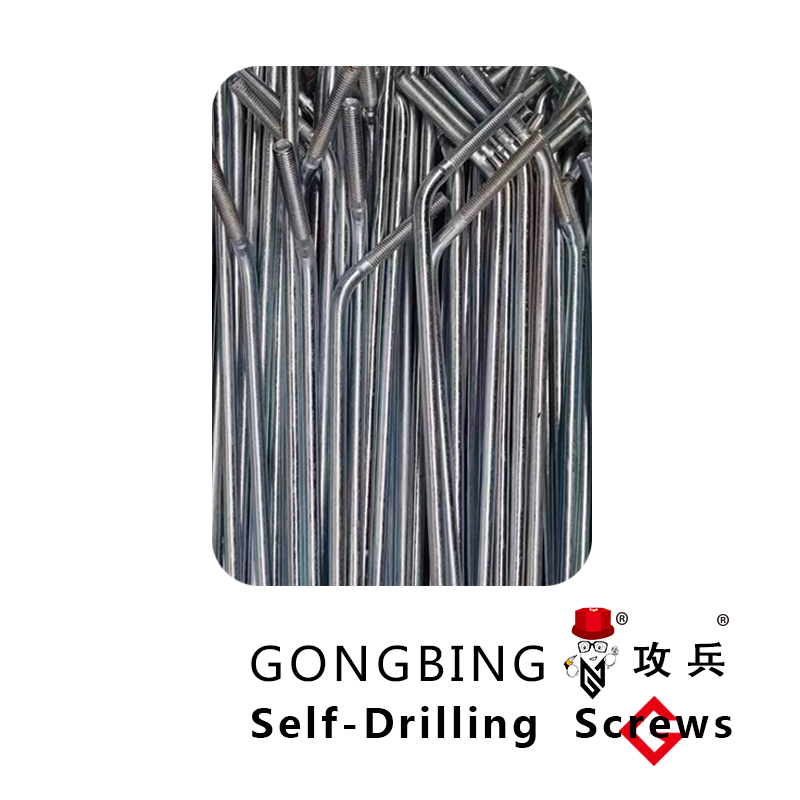zinc self tapping screws
Understanding Zinc Self-Tapping Screws Purpose, Benefits, and Applications
Zinc self-tapping screws are an essential type of fastener widely used in various construction and manufacturing applications. These screws are designed to create their own hole as they are driven into materials, which can include wood, metal, plastic, and other substrates. The distinct advantages they offer make them a preferred choice among professionals and DIY enthusiasts alike.
What Are Zinc Self-Tapping Screws?
Zinc self-tapping screws are made from steel and coated with a layer of zinc. This zinc plating serves a critical purpose; it enhances the screw’s resistance to corrosion, making it ideal for both indoor and outdoor use. The self-tapping feature means these screws can form threads as they penetrate the material, eliminating the need for pre-drilled holes. This not only saves time during installation but also ensures a tight and secure fit, which is crucial for structural integrity.
Benefits of Zinc Coating
The primary advantage of using zinc-coated screws lies in their durability. Zinc provides a physical barrier against moisture, air, and other corrosive elements that can lead to rust and deterioration. This is particularly important in environments where screws are exposed to the elements, such as in outdoor constructions or in industrial settings. Zinc self-tapping screws are also less prone to stripping, which can often occur with conventional screws, further enhancing their reliability.
Applications of Zinc Self-Tapping Screws
zinc self tapping screws

Zinc self-tapping screws are versatile fasteners that find application in numerous areas. One of the most common uses is in the assembly of metal products, where they effectively fasten parts without requiring additional hardware. They are frequently used in automotive manufacturing, appliance assembly, and even in the construction of furniture. Moreover, their ability to create threads in various materials makes them suitable for electrical and plumbing installations, as they help secure components solidly, preventing potential leaks or electrical failures.
Installation and Usage
Installing zinc self-tapping screws is a straightforward process. A power drill or screwdriver is typically used to drive the screw into the chosen material. The design of these screws means they can cut into the material efficiently, forming a tight grip without the need for pre-drilling. This can significantly speed up project timelines, making these screws favored by contractors who need to meet tight deadlines.
To optimize performance, it is essential to select the right type of zinc self-tapping screw based on the specific application. Factors such as the material being used, the environment (indoor vs. outdoor), and the load-bearing requirements will influence the choice of screw. Furthermore, users should ensure that the drill bit size matches the screw’s dimensions for optimal engagement.
Conclusion
In summary, zinc self-tapping screws are an invaluable tool in a wide array of construction and manufacturing projects. Their self-tapping nature, combined with the protective benefits of zinc coating, makes them a go-to fastener for professionals and DIY enthusiasts alike. The durability, corrosion resistance, and ease of installation are key factors that highlight their significance in today's fast-paced and demanding environments. Whether one is building outdoor furniture, assembling metal structures, or working on home repairs, zinc self-tapping screws provide a reliable solution that guarantees a strong and long-lasting hold. As the industry continues to innovate, the versatility and performance of these screws will undoubtedly remain pivotal in achieving structural excellence.
-
Weatherproof Plastic Expansion Anchors for OutdoorKabarJun.06,2025
-
Sustainability in the Supply Chain: Eco-Friendly TEK Screws ProductionKabarJun.06,2025
-
Load-Bearing Capacity of External Insulation FixingsKabarJun.06,2025
-
Double Head Bolts: Enhancing Efficiency in Industrial MachineryKabarJun.06,2025
-
Corrosion Resistance in Chipboard Screws: Coatings for Wholesale DurabilityKabarJun.06,2025
-
Butterfly Toggle Bolts : Enhancing Structural ResilienceKabarJun.06,2025
